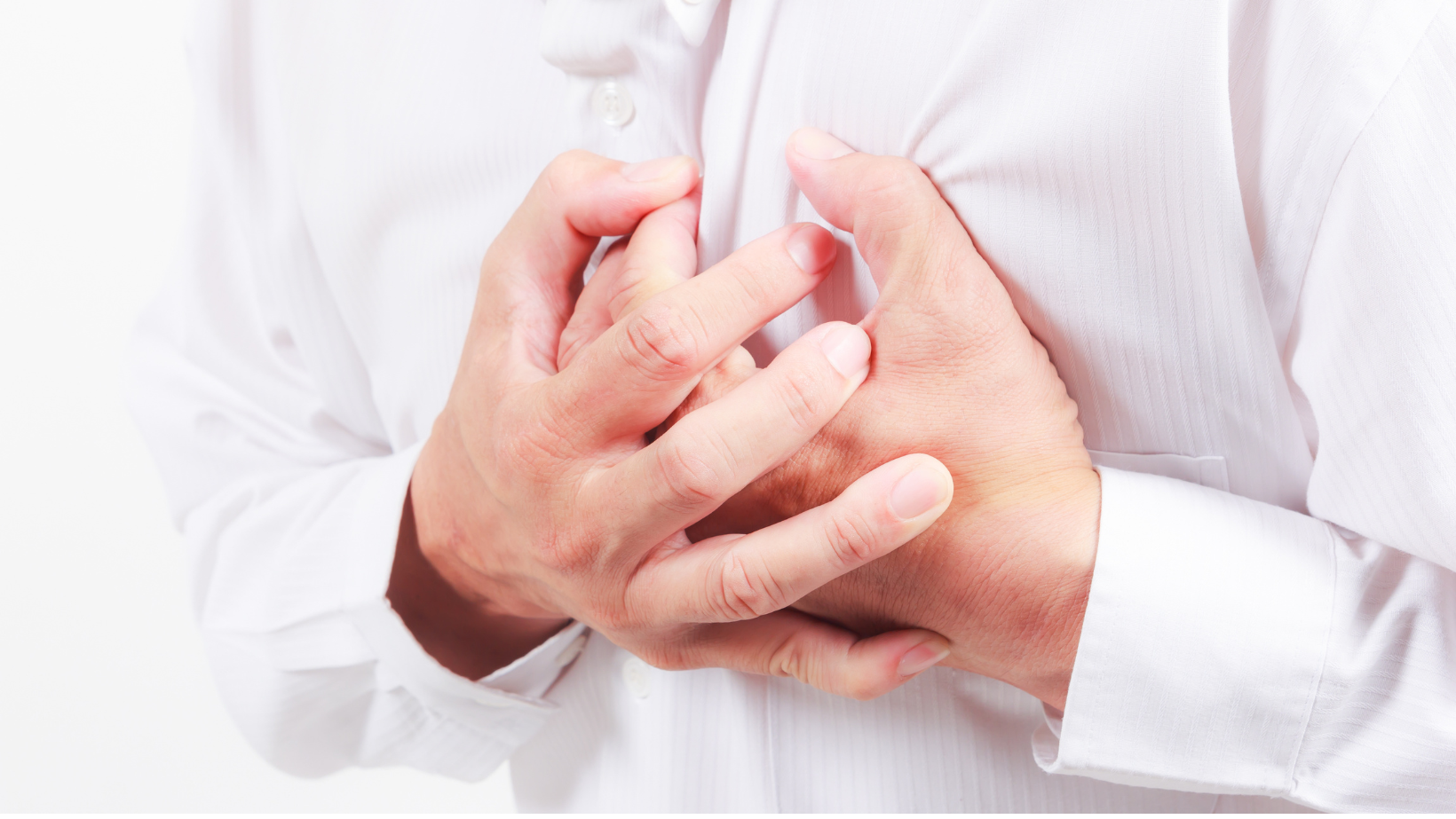Have you ever had an ache in your chest after a night of heavy drinking, perhaps over the holidays? Or maybe you even felt it a few hours after a binge-drinking session. If this sounds familiar, you may have a serious problem.
Although not a defined condition, some doctors have labelled irregular heartbeat, breathlessness, or chest pain after alcohol consumption as “holiday heart syndrome”.
The British Medical Journal reported Sunday night into Monday morning is the commonest time of the week for heart deaths in the UK and linked this to weekend binge drinking.
Pain in the chest can indicate a variety of problems so, before diagnosing chest pain as due to the heart, doctors will of course also consider whether it might be arising in the oesophagus (‘gullet’) and stomach – which might also be related to alcohol from alcohol-irritation – or strain in one of the rib muscles. Some heavy drinkers get inflammation of the pancreas which can cause pain felt in the ribs as well as the tummy.
There is no doubt that heavy drinking causes some serious and common heart problems.
Table of Contents
How Alcohol Affects the Heart
Alcohol, even in healthy individuals, can increase blood pressure and may cause an irregular heartbeat (atrial fibrillation), and chest pain, and episodes of these are often noticeable during hangovers and withdrawals.
Heavy drinking over many years can cause the heart muscle to expand which weakens it and causes it to work less efficiently, leading to chest pain and heart disease.

Isn’t Alcohol Good for the Heart?
While there are studies that have found that people drinking very low amounts of alcohol tend to have lower blood pressure and fewer heart attacks, these also tend to be the people who take more exercise, have stable lives and better diets, any or all of which could explain the link. Nevertheless, scientists have shown that moderate drinking tends to balance cholesterol levels and reduce blood clotting which together could help prevent arteries from getting narrowed.
However, any possible alcohol-related health benefits apply only for people who drink very moderately. Most of the time, if someone experiences chest pain and heart problems from drinking, they are drinking significantly more than the 14 units per week (equivalent to six pints of beer or seven glasses of wine spread over 3 or more days, with some alcohol-free days during the week) which public health specialists put as the recommended ceiling.
Why You May Have Chest Pain After Alcohol
Alcohol-related chest pain can be caused by a number of reasons. If it’s heart-related, it may be angina (reduced blood flow to the heart) or, as a worst-case scenario, a heart attack. Chest pain may also signify the presence of a pre-existing condition, which was triggered by alcohol consumption. Many conditions are caused or aggravated by alcohol. However, they may also be unrelated to a person’s alcohol intake.

Download Our Brochure
Alcohol Cardiomyopathy
The expansion and weakening of the heart puts extra pressure on surrounding blood vessels which results in ‘alcohol cardiomyopathy’ (disease of the heart muscle) and often presents itself as chest pain. This condition seems to be a cumulative effect of years of heavy drinking. It can lead to ‘heart failure’ where fluid accumulates in parts of the body because the pumping of the heart is diminished.
Cardiomyopathy has various causes, and alcohol is only one of them. However, alcohol may worsen cardiomyopathy that is present due to other reasons.
Stress and Anxiety
Excessive drinking can worsen anxiety levels, partly because of the rebound in the nervous system that follows during the morning after. Alcohol-induced anxiety can last for many hours after drinking. Some people even have panic attacks the day after a night of heavy drinking, which can lead the sufferer to experience chest pain and fear that a heart attack is going to happen.
Additional Substances
If someone is taking other medications or drugs, the interaction can result in chest pain as well. If alcohol is mixed with cocaine, it puts a lot of strain on the cardiovascular system. Metronidazole, an antibiotic, can worsen high blood pressure when taken with alcohol.
Smoking alone can irritate the lungs, which may cause chest pain, but combined with alcohol can also increase blood pressure. In addition, smoking tends to worsen symptoms of acid reflux.
If you are worried about alcohol-induced chest pain and believe that drinking is affecting your heart contact our Help Desk team today and we can talk through the ways in which you can leave drinking behind and begin a healthy life.
What to Do If You Experience Alcohol Chest Pain
Chest pain shouldn’t be ignored. If you feel unwell after drinking, and it doesn’t improve with rest and perhaps an antacid if you are prone to indigestion, then ask for advice. Depending on how severe it is, if it doesn’t improve medical opinion should be requested.
Know the Symptoms of a Heart Attack
Because alcohol can trigger a heart attack, it is important to know the signs. Some people tend to dismiss chest pain, which can be dangerous. In addition, the symptoms may not always be present or as extreme, especially in women. However, if any of the following major symptoms last for more than 15 minutes, it is better to go to a hospital.
Major symptoms:
- Severe chest pain (crushing, tight, or heavy pressure)
- Radiating pain to other parts of the body (shoulders, arms, back)
- Difficulty breathing
Other symptoms:
- Sweating
- Anxiety
- Dizziness
- Nausea
How to Prevent Alcohol Chest Pain
A healthy diet and regular exercise can help prevent heart disease. Do not overeat as this can put a strain on your heart and lead to chest pain.
If you notice that you get regular chest pain after drinking, you should moderate your intake or stop altogether. Because it may signify the presence of a different problem, it is important to talk to a doctor. And if you feel that you can’t limit yourself or stop, you may be developing alcohol dependence – i.e. addiction.

Alcohol addiction is a progressive disease but a treatable one. Should you notice any signs in yourself or anyone you know, there is help: AA meetings, your GP, or a residential centre (‘rehab’) like Castle Craig. Call our help deskfor more information about the options that are out there to help you stop drinking.
At Castle Craig, we specialise in addiction to alcohol, drugs and gambling and other behavioural addictions. We have treated thousands of people addicted to alcohol and drugs since 1988. Our medical team consists of Consultant Psychiatrists, doctors and nurses as well as a team of psychotherapists and fitness and wellness staff. We are regularly inspected by Healthcare Improvement Scotland and have been rated ‘Excellent’ – with Castle Craig you are in safe hands.
If you think you have a problem, don’t hesitate to give us a call. Our Help Desk will give you advice and guidance without any obligation.
-
Related Pages on Alcohol Addiction
